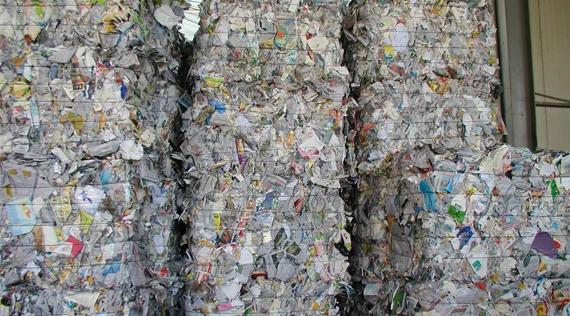
SEATTLE (Waste Advantage): China is tired of putting up with our garbage.
China is a top buyer of recyclables from other countries, but it announced this year that it would be drastically reducing the amount of recycling it accepts from places like the United States, largely due to the high contamination of recyclables with plain old trash.
That reduction is a big deal: Last year, China imported about two-thirds of the United States’ waste paper and more than 40 percent of its plastic, according to Governing.
In parts of the U.S. and other countries, the purchasing reduction has already resulted in pile-ups of recyclables, as companies that sort and sell recycling can’t find buyers for the material.
While things in Minnesota — far from coastal ports and home to companies that buy and use recycled plastic and paper — don’t seem to be as dire as in many places, companies here that collect and sell recycling are starting to feel the effects of the Chinese policy, and some involved in the process say it could provide an opportunity to develop more strategies to reuse recycling at home.
Contaminated Recycling
There’s a reason China doesn’t want as much of the U.S.’s recyclables as it used to.
In terms of quantity, Americans have gotten much better at recycling over time. In 1960, just 6 percent of municipal solid waste was recycled, compared to more than a third today, according to the U.S. Environmental Protection Agency.
In terms of quality, though, we’ve gotten worse.
In recent years, many cities, including Minneapolis and St. Paul, and recycling companies have moved to make it easier for people to recycle — switching from bins that require consumers to separate out papers from plastics and cans to single-stream recycling in carts with everything mixed together.
That convenience has come at a cost.
“Both single-stream and (recycling) carts have increased contamination,” said Kate Davenport, the co-president of Eureka Recycling, a nonprofit recycler in Northeast Minneapolis, which handles recycling for Minneapolis, St. Paul and other metro area cities.
The issue is partly cross-contamination caused by the mixing of different kinds of recyclable materials — though technology adopted by recyclers has enabled a larger amount of recyclables to be mechanically sorted. Single-sort policies have increased the amount of “wishcycling” — a term for when consumers try to recycle something that’s not recyclable because they think or hope it is. At the same time, the switch from open bins to carts with lids made it harder for workers who pick up recycling to see non-recyclable material, which means more of it ends up heading to recycling facilities.
Courtesy: https://wasteadvantage.com
| Copper Scrap View All | |
| Alternator | 0.31 (0) |
| #1 Copper Bare Bright | 3.69 (0.04) |
| Aluminum Scrap View All | |
| 356 Aluminum Wheels (Clean) | 0.71 (0) |
| 6061 Extrusions | 0.62 (0) |
| Steel Scrap View All | |
| #1 Bundle | 475.00 (0) |
| #1 Busheling | 495.00 (0) |
| Electronics Scrap View All | |